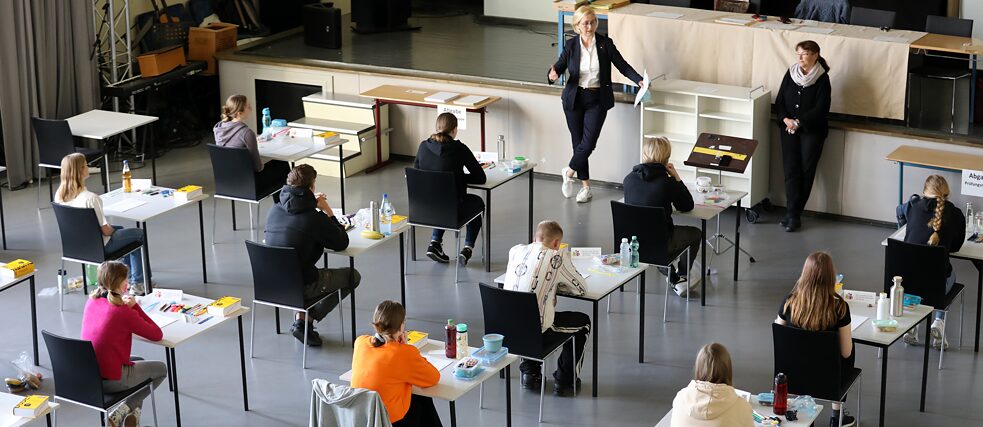Frankly ... integrated
Studying with an Immigration Background

What influence does an immigrant background have on education and educational opportunities in Germany? Sineb El Masrar writes about the decisive factors in getting students from immigrant families through school – and into university.
By Sineb El Masrar
Over the course of history, students from immigrant families have had a hard time of it at German schools and universities, marked by continual slights and slurs, discrimination and ignorance. The problem has often been underestimated or belittled in the past, especially at the height of foreign labour recruitment from the 1960s to well into the 1990s. When students needed extra help, some teachers used that as a convenient pretext to keep them from making it to university. This is one side of the story.
Even in their first years at school, immigrant children pay the price and many never achieve their scholastic potential. Some drop out early and end up working unskilled odd jobs or joining the ranks of the long-term unemployed or even, in the worst-case scenario, of organised crime. Some make up for their difficult school years by taking evening classes later on, while others actually do get the extra help they need early on. And some experience a school time of steady growth in knowledge, including a desired degree.
The statistics often cited in assessing educational opportunities are usually interpreted one-sidedly or tell only part of the story. What’s more, the data on students’ immigrant backgrounds is sketchy at best and very incomplete.
The Role of an Immigrant Background
If we compare the school-leaving qualifications of the population aged 18 to 65, the differences between those with and those without an immigrant background are mostly marginal. The only significant disparities are that adults with an immigrant background in Germany are 13 per cent less likely to have graduated from Realschule (roughly, secondary modern or junior high school) and 10 per cent more likely to have no secondary school qualifications at all. All the other percentages for school-leaving qualifications, however, are pretty close. Around 42 per cent of both contingents have an Abitur, the general qualification for university entrance in Germany.The student body at most German universities nowadays is a mixed bag of Germans (whether from immigrant families or not) and foreign students whose native language was never German, which most of them struggled to learn in their native countries. Upon arrival in Germany, many have to take German classes again before they can actually begin their studies at university.
Apart from having immigrant origins, the decisive factor for students who’ve grown up in Germany is the home and how important education is to their parents. This is also reflected in gender differences: Girls usually do better in school than boys, which is partly due to the traditional structures imposed on girls, especially in conservative families.
Getting an Education is Hard Work
Studies point up the importance of the learning environment at home, too, which includes getting to bed early and getting enough wholesome food to eat as well as having a quiet room or corner to study in at home. Some college graduates are from impoverished, uneducated homes. But they either benefited from a good learning environment at home or got the support they needed from teachers, neighbours and other helpers.As is so often the case, there’s no one single reason for educational success or failure. Education doesn’t depend only on the students themselves, but on their teachers, parents and the educational system, who need to step in whenever students need some help. All these factors interact and this interaction is, now as ever, dysfunctional. However, even among the first wave of immigrants to post-war Germany, many successfully completed their education in Germany thanks to a solid educational system, hard work – and occasionally fortuitous circumstances – upon which we, as a society, should not rely.
The interaction between the educational system and the family, between teachers and parents, is a key factor. Instead of always passing the buck and the blame, educators and parents must each do their part and share responsibility to give kids from immigrant families a chance of making it through the education system. Getting an education is hard work – and not just for students.
“Frankly ...”
On an alternating basis each week, our “Frankly …” column series is written by Sineb El Masrar, Susi Bumms and Maximilian Buddenbohm. Sineb El Masrar writes about migration to and the multicultural society in Germany: What strikes her, what is strange, which interesting insights emerge?